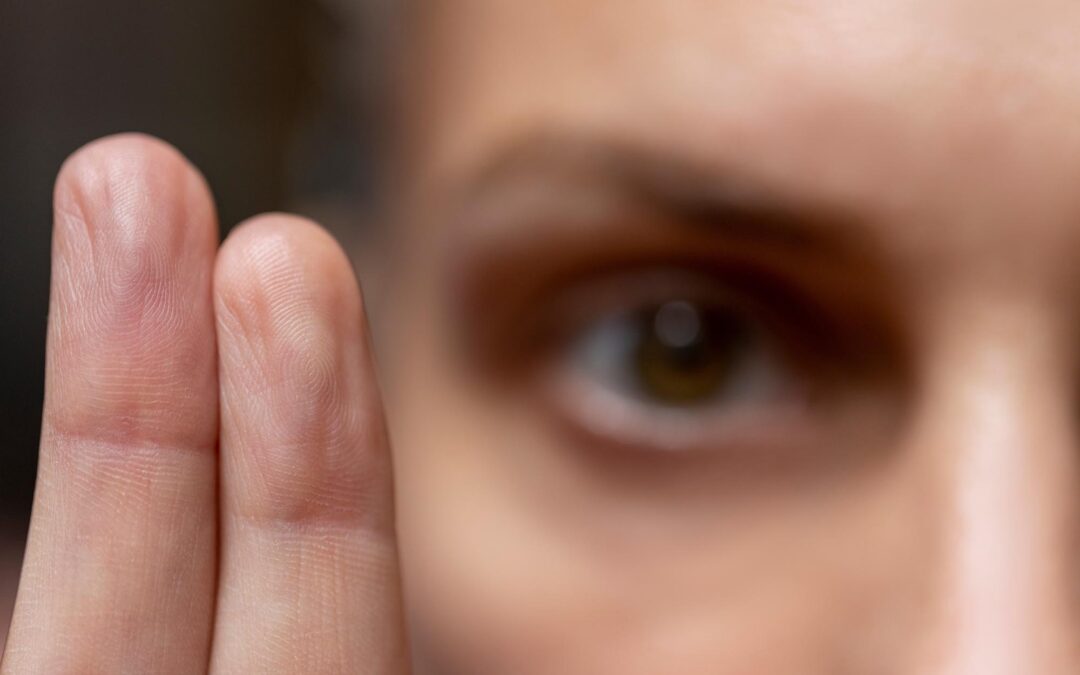Introduction
Why can’t I sleep after quitting drinking? Understanding insomnia in withdrawal is crucial for anyone going through alcohol withdrawal. Many people discover that one of the significant challenges of giving up alcohol is dealing with sleep disruption.
Alcohol withdrawal and insomnia often go hand-in-hand. When someone stops drinking, their body undergoes various changes as it adjusts to functioning without alcohol. These changes can wreak havoc on sleep patterns, leading to persistent insomnia.
Understanding the connection between alcohol withdrawal and insomnia is essential. Sleep plays a vital role in recovery; without it, the journey becomes tougher. Here’s why:
- Brain Chemistry: Alcohol affects neurotransmitters in the brain that regulate sleep.
- Withdrawal Symptoms: As the body detoxes, symptoms like anxiety and restlessness make it hard to fall or stay asleep.
- Physical Discomfort: Sweating, shaking, and other physical symptoms disrupt normal sleep cycles.
Insomnia during alcohol withdrawal isn’t just a nuisance—it can significantly impact your recovery journey. Lack of quality sleep exacerbates withdrawal symptoms, making it harder to cope with cravings and emotional stress. Recognizing and addressing this issue early can make a substantial difference in your path to sobriety.
The Science Behind Alcohol Withdrawal Insomnia
Alcohol has a significant impact on brain chemistry, particularly through its interaction with GABA receptors. These receptors play a crucial role in sleep regulation. When you consume alcohol, it enhances the effects of gamma-aminobutyric acid (GABA), a neurotransmitter that promotes relaxation and sedation. This is why alcohol can make you feel drowsy and help you fall asleep faster.
However, this sedative effect comes at a cost. Over time, your brain becomes dependent on alcohol to maintain these heightened levels of GABA activity. When you suddenly stop drinking, your brain struggles to readjust to the absence of alcohol’s influence. This chemical readjustment can lead to a range of withdrawal symptoms, including insomnia.
During withdrawal, the reduced activity of GABA receptors makes it difficult for your brain to achieve the same level of relaxation and tranquility required for sleep. Additionally, other neurotransmitters like norepinephrine and glutamate may become overactive, further disrupting your sleep patterns.
Key Points to Remember:
- GABA Receptors: Critical for promoting relaxation and sedation.
- Chemical Readjustment: Your brain struggles to adapt without alcohol’s influence.
- Increased Overactivity: Other neurotransmitters can become overactive during withdrawal, worsening insomnia symptoms.
Understanding these changes can highlight why insomnia is such a prevalent issue during alcohol withdrawal and why managing it effectively is crucial for your recovery journey.
Prevalence of Insomnia During Alcohol Withdrawal
Insomnia is a common issue faced by individuals going through alcohol withdrawal. Studies have shown that the prevalence rates can vary widely, with figures ranging from 25% to 72%. This significant variation highlights how common sleep disturbances are during the recovery process.
Several studies have pinpointed the duration of insomnia symptoms post-withdrawal. It’s not uncommon for these sleep issues to persist for weeks or even months after ceasing alcohol consumption. For some, insomnia might be a short-term struggle, while others could experience long-lasting effects.
Implications for Mental and Physical Health
Dealing with insomnia during alcohol withdrawal can have profound implications on both mental and physical health:
- Mental Health: Insomnia often worsens anxiety and irritability, which are already heightened during withdrawal. Lack of sleep can also lead to depressive symptoms, making it harder to stay motivated in the recovery journey.
- Physical Health: Poor sleep quality affects overall physical well-being. Chronic insomnia can lead to weakened immune function, making the body more susceptible to illnesses and prolonging the recovery process.
Recognizing these statistics and understanding the prevalence of insomnia in recovery is crucial for addressing and managing these symptoms effectively. Adequate support and treatment options can make a significant difference in overcoming these challenges.
Psychological and Physical Effects of Insomnia in Recovery
Anxiety and Irritability
When experiencing alcohol withdrawal, insomnia can significantly intensify feelings of anxiety and irritability. Lack of sleep disrupts the brain’s ability to regulate emotions, leading to heightened stress levels. This emotional turbulence often leaves individuals asking, “Why Can’t I Sleep After Quitting Drinking? Understanding Insomnia in Withdrawal” becomes crucial as it sheds light on the intricate connection between sleeplessness and mood swings during recovery.
The impact of insomnia isn’t limited to alcohol withdrawal alone; it can also affect those dealing with other substance withdrawals, such as cocaine. The psychological effects, including anxiety and irritability, can be exacerbated by the lack of sleep experienced during these withdrawal phases.
Concentration Issues
Insomnia doesn’t just mess with your mood; it also takes a toll on your cognitive functions. Concentration issues are common. When you’re running on little to no sleep, focusing on tasks becomes a Herculean effort. Memory lapses and decreased problem-solving abilities are frequent companions during this phase, making day-to-day activities more challenging.
Enthusiasm for Recovery
Exhaustion stemming from insomnia can sap your enthusiasm for recovery. The mental fog and emotional strain make it hard to muster the energy for recovery activities, such as attending support groups or engaging in therapeutic exercises. It’s a vicious cycle: poor sleep hampers recovery efforts, which in turn can prolong insomnia.
Anyone navigating their way through alcohol withdrawal knows how disruptive insomnia can be. Addressing these psychological and physical effects is vital for maintaining a steady path toward sobriety. Seeking professional help from an intensive outpatient program or a partial hospitalization program can provide the necessary support during this challenging time. For those who need immediate assistance or have inquiries about available services, reaching out through the contact page could be a beneficial step toward recovery.
Strategies for Managing Alcohol Withdrawal Insomnia
Dealing with insomnia during alcohol withdrawal can be challenging, but adopting effective strategies can significantly improve sleep quality. Emphasizing good sleep hygiene and making lifestyle changes are key steps in this process.
Importance of Establishing Healthy Bedtime Routines
Creating a consistent bedtime routine is essential for promoting better sleep. Here’s how you can do it:
- Set a Regular Sleep Schedule: Go to bed and wake up at the same time every day, even on weekends. This helps regulate your body’s internal clock.
- Create a Relaxing Pre-Sleep Routine: Engage in calming activities before bedtime, such as reading a book, taking a warm bath, or practicing meditation.
- Limit Screen Time: Avoid electronic devices at least an hour before bed since the blue light emitted can interfere with your sleep cycle.
Specific Strategies for Better Sleep
Incorporating specific strategies into your daily routine can make a significant difference:
- Avoid Stimulants: Steer clear of caffeine, nicotine, and other stimulants, especially in the hours leading up to bedtime.
- Optimize Your Sleep Environment: Ensure your bedroom is dark, quiet, and cool. Consider using earplugs or white noise machines if you live in a noisy area.
- Watch Your Diet: Avoid heavy meals right before bed, and try not to drink large amounts of liquids in the evening to prevent frequent trips to the bathroom.
Role of Exercise in Improving Sleep Quality
Regular physical activity can also play a crucial role in managing alcohol withdrawal insomnia:
- Daily Exercise Routine: Engaging in moderate exercise like walking, swimming, or yoga can help you fall asleep faster and enjoy deeper sleep.
- Timing Matters: Aim to complete your workout at least a few hours before bedtime. Exercising too close to bedtime might have the opposite effect by energizing your body.
By incorporating these strategies into your daily life, you’re more likely to experience significant improvements in sleep quality during alcohol withdrawal. Prioritizing sleep health through healthy bedtime routines, avoiding stimulants, and regular exercise forms a robust foundation for recovery success.
The Benefits of Medically Supervised Detox for Sleep Health in Recovery
Detox programs can be a game-changer when it comes to managing the intricate challenges of alcohol withdrawal, especially insomnia. Here’s why:
1. Advantages of undergoing detox in a supervised environment
- Safety during withdrawal: Medical supervision ensures that individuals are monitored around the clock, reducing the risk of complications.
- Immediate intervention: Professionals can step in promptly when severe withdrawal symptoms, including sleep disturbances, occur.
2. How professionals can address severe symptoms effectively
- Medication management: Certain medications can ease withdrawal symptoms and help regulate sleep patterns.
- Tailored therapies: Cognitive-behavioral therapy (CBT) and other treatments can be customized to address both psychological and physical aspects of insomnia.
3. Support systems available to individuals in recovery from alcohol addiction
- Counseling and emotional support: Regular sessions with therapists or counselors provide emotional stability and coping mechanisms.
- Group support: Interacting with peers who are experiencing similar challenges can offer reassurance and shared strategies for better sleep.
Choosing medically supervised detox programs, such as those offered by West LA Recovery, not only enhances safety during the withdrawal phase but also provides access to a comprehensive support system. This multifaceted approach significantly boosts the chances of overcoming insomnia and achieving lasting recovery.
For those questioning their relationship with alcohol, understanding the signs of alcoholism can be an important step towards seeking help.
Conclusion: Prioritizing Sleep Health in Your Journey to Recovery from Alcohol Addiction
Why can’t I sleep after quitting drinking? Understanding insomnia in withdrawal is a crucial step in your recovery journey. Sleep health plays a vital role in ensuring a smooth path to sobriety.
- Seek Help for Insomnia: Insomnia during alcohol withdrawal isn’t something you have to battle alone. Professional assistance can provide you with tailored strategies and support.
- Maintain Healthy Sleep Practices: Establishing good sleep habits is essential. This includes adhering to a regular sleep schedule, creating a relaxing bedtime routine, and avoiding stimulants close to bedtime.
Your recovery journey is deeply personal, and maintaining a focus on sleep quality can make all the difference. At West LA Recovery, we recognize the importance of sleep health as part of comprehensive addiction treatment. By prioritizing restful sleep, you’re not only enhancing your recovery process but also building a foundation for sustained well-being.
Taking steps to improve your sleep during this transformative time can lead to better mental clarity, emotional balance, and a more positive outlook on life. Don’t hesitate to reach out for help and make your sleep health a priority as you navigate the path to recovery.







